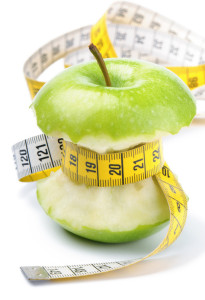We probably all know what we should be doing to improve our health. Yet each year, despite making resolutions with the best of intentions, few of them, if any, seem to last very long. So why does this keep happening?
Most of us can predict the answer: we commit to outrageously big (and hence, difficult) life changes, we set ‘hard and fast’ rules that don’t allow for missteps or ‘wiggle room’ and when we ‘fail’, that sense of failure drives us right back into destructive old habits. But you don’t have to be ‘stuck’ with those old habits – you can create a healthier life, simply by making small changes that work for you. Below are the most important dietary changes you can make for you health in 2013.
Change one element of your diet each month
Long lasting meaningful change develops slowly, so reflect on your diet and identify where YOU can make positive changes. Remember small consistent changes will be not only achievable but you’ll barely miss the old ways. Try to make one healthy diet change per month using the list of tips below:
- Try a new food each month. It is important to explore the wonderful tastes, flavours and textures of good food – not to mention that greater variety often means greater likelihood of meeting your nutritional needs! Embark on a food exploration journey in 2013.
- Drink water before every meal.
- Add extra vegetables or salad to your lunchtime sandwich each day.
- Eat fish at least twice a week. Adding this to your diet will hopefully displace something less healthy, so you’re improving your diet and getting important (and often overlooked) nutrients, like omega-3s
- Eat at least five serves of vegetables every day. Simply cover half your dinner plate with vegies or salad, and do the same at lunch.
- Always have a piece of fruit in your bag. It’s a healthy snack that’s easy to carry.
- Use cooking oil spray instead of bottled oil.
- Swap kilojoule-laden drinks like fizzy drink, sports drinks, juice, cordial, full-fat milk and alcohol for water, tea (herbal, green or black), skim milk, soda water, diet cordial and diet soft drinks.
- Stop adding salt to your food. It’s as simple as that. If you have to use it, replace it with potassium salt.
- Choose the unprocessed versions of food. Foods without labels are the healthiest foods you can have.
Make the most of breakfast
- Eat breakfast. Skipping meals contributes to the development of eating disorders, such as bulimia and binge eating disorder. A healthy breakfast provides nutrition for the working day.
- Switch to low-fat dairy products and wholegrain/wholemeal bread. Making simple switches to the healthier version of products can reduce cholesterol levels and improve heart health.
- When eating your breakfast cereal, don’t place the box on the table in front of you.
- Add some psyllium husk to your morning cereal. You can’t taste it, but you’re increasing the amount of fibre in your diet. Fibre plays many different roles – it’s not only great for digestive health, but also for weight management and heart health.
Modify your portions
- Remove a few spoonfuls from each main meal (such as your cereal or stir-fry). Not only will you eat less, you will get used to feeling satisfied rather than full.
- Downsize your latte or switch to tea – a milky coffee is equivalent to a snack.
- Change your large plates and bowls for smaller-sized ones. This may decrease the amount of food you eat at each meal.
- Halve the amount of meat in your meals, and replace it with legumes – for example, half mince, half lentils. Or halve the chicken and add tofu or chickpeas to your next stir-fry. Evidence to suggests that a plant-based diet has many benefits for your health, particularly in the prevention of chronic diseases, such as heart disease, diabetes and cancer.
- Don’t skip meals – it’s easier to control your weight this way.
- Downsize your portions You don’t have to give up all your favourite foods, but you don’t need a truckload of them either! As long as you’re just eating a small mouthful of your crème brulee or your favourite chocolate, you can follow whatever diet you want. This is a far more attractive proposition than having to give up your favourite foods!
Think ‘2+5+ a handful’ – two serves of fruit, five serves of vegies and a handful of nuts every day. A handful of nuts a day may reduce your risk of heart disease and diabetes, help lower blood cholesterol and manage your body weight. Plus, since nuts are plant foods like fruits and vegetables, they’re rich in vitamins, minerals, fibre and antioxidants.
Natalie Linton APD
Munch Nutrition
www.munchnutrition.net.au
For more help on making the most important changes to your diet in 2013 contact us at OUTFIT health + fitness.





Hello would you mind sharing which blog platform you’re using? I’m planning to start my own blog in the near
future but I’m having a hard time deciding between BlogEngine/Wordpress/B2evolution and Drupal. The reason I ask is because your design seems different then most blogs and I’m looking for something unique.
P.S My apologies for being off-topic but I had to ask!
It is a wordpress site. We chose a template design for the website blog